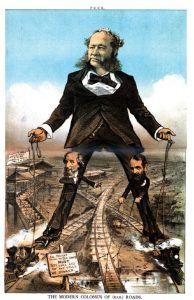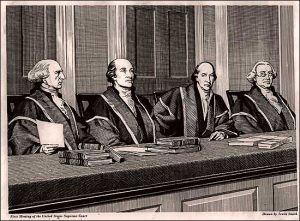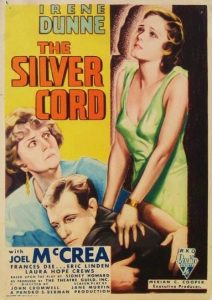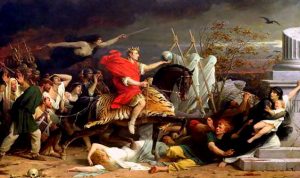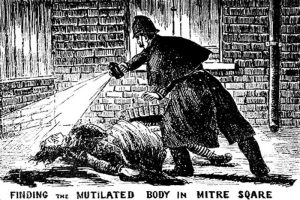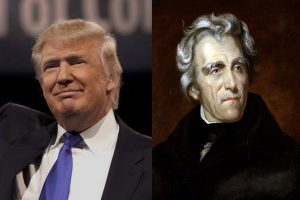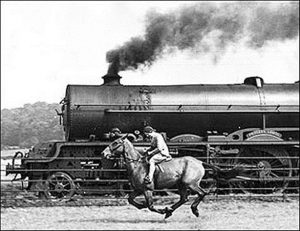Your federal government is in the process of agreeing to spend at least $715 billion and as much as $3.5 trillion on infrastructure expenses. Why? Our roads, bridges, and airports are decaying. Government built a great majority of these, largely in order to promote car and airplane travel.
This enormous expense falls on taxpayers and will continue to do so for the foreseeable future. It is not just federal money but also an enormous portion of state and local expenditures. Roads and airports will never pay for themselves.
Would you like to know a form of transportation that, up until government got involved, did pay for itself? Rail.
Let’s find my Time Travel Hat and get this rant rolling!
Early Rail in the United States
Where is that thing? It’s never where I left it. Freezer? Nope. Under the bed? Nope. Ah, there it is, my Yadier Molina bobblehead put it on for some reason. All right, plop it on, spin three times, whoosh, bang and where do I find myself?
Why, it’s the nineteenth century, 1815 to be exact, as I note on a local broadsheet. A fellow named John Stevens just got a charter for the New Jersey Railroad, the first of its kind in the United States.
Spinning again, hat taking control on its own. Dizzy, fuzzy, looking around, where am I now? Trains, trains, everywhere! There are 17,800 freight locomotives carrying 23,600 tons of freight, and 22,200 passenger and it’s 1880 a mere sixty-five years since the first rail lines emerged.
How did all this expansion happen? Largely with capitalistic investment which exploded after the Civil War where the North’s superior rail network proved integral to victory. It also must be noted much of this expansion came with the racial exploitation of Chinese laborers brought to the United States expressly for this purpose.
Light Rail and Trolleys
It’s not just trains carrying passengers from one part of the country to the other but the major metropolises are building light rail systems. My hometown of St. Louis sported a fantastic trolley system that moved willing passengers for years.
Such light rail and trolley systems still exist today but greatly reduced from their prime. In New York, it is possible, and frankly preferable, to travel almost exclusively using the subway system which is the largest remaining in the United States.
The End of Passenger Rail
Gasp. Third trip and I’m about wiped out but where am I now? It’s the Turn of the Century, the Twentieth that is. It’s been a bit of a Boom-and-Bust business cycle for the rail industry but we now have 254,037 miles of track and it’s all downhill from here.
What happened? Trains work extremely well but the passenger rail system began dying for some reason. The government got overly involved is what happened.
The Federal Air Road Act of 1916 funneled $75 million tax-dollars into building roads and airports, the first of many such expenditures that continue to this day. The United States Railroad Administration nationalized the entire rail system in December of 1917.
The passenger rail system just could not compete with this enormous influx of federal, state, and local dollars designed to encourage air and car travel. It’s not really important as to why the government felt such transportation superior. There were reasons, some of them even good reason.
The Result
The passenger rail system largely died. Cars with their necessary roads and planes with their required airports took over. All built and maintained largely by tax dollars. That’s why we must spend trillions of dollars to support the crumbling infrastructure that would largely not exist if government hadn’t gotten involved.
It’s impossible to determine with any assurance what would have happened. Passenger rail was killed, that is where we find ourselves. I think it’s not farfetched to imagine a greatly expanded rail network covering much of the country by now, but that’s speculation.
The Solution
How do we fix this mess? It took us over a hundred years to get here so there is no easy solution. People are used to cars and planes. We have an enormous infrastructure of roads and airports that cannot, and should not, be dismantled. Cars will always have a place, as will planes; they are useful but capitalistic economics should drive their future.
We need to phase out tax-support for roads and planes in slow and cautious steps. Let entrepreneurs start new rail transport systems, small at first surely. Money is to be made and people want to make it.
Maybe it will take another hundred years to establish a proper equilibrium between trains, cars, and planes. One that is driven by need and profit, not by government interference. Let’s start that journey today.
Tom Liberman
